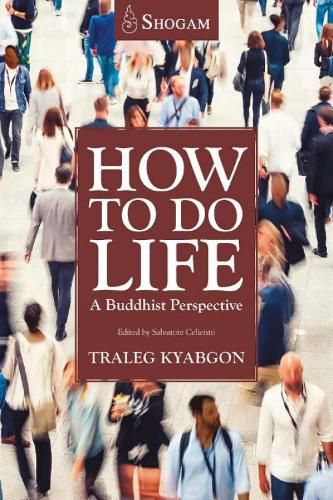Readings Newsletter
Become a Readings Member to make your shopping experience even easier.
Sign in or sign up for free!
You’re not far away from qualifying for FREE standard shipping within Australia
You’ve qualified for FREE standard shipping within Australia
The cart is loading…






If emotions simply happened to us and we have no choice in the matter, we could not speak about creating good or bad karma. If there is no choice, then how can we support the idea of change, transformation, or progress? From a Buddhist perspective, we are responsible for our actions or experiences, including how we manage our emotions. One cannot be made responsible for something when one has no choice in the matter. Our range of emotional experiences, as well as being fuelled by past experiences, the content and quality of our thoughts, and our ethics and beliefs, are also related to outcomes that we wish to achieve. Emotions are more-often-than-not used in a strategic manner. We use our emotions to elicit certain responses and gain certain results from others. They are used to gain specific results within our interactions. Rather than being seen as something that happens to us, emotions are seen as something that we create and invariably use in a strategic manner, even if somewhat unconsciously. – Traleg Kyabgon
$9.00 standard shipping within Australia
FREE standard shipping within Australia for orders over $100.00
Express & International shipping calculated at checkout
If emotions simply happened to us and we have no choice in the matter, we could not speak about creating good or bad karma. If there is no choice, then how can we support the idea of change, transformation, or progress? From a Buddhist perspective, we are responsible for our actions or experiences, including how we manage our emotions. One cannot be made responsible for something when one has no choice in the matter. Our range of emotional experiences, as well as being fuelled by past experiences, the content and quality of our thoughts, and our ethics and beliefs, are also related to outcomes that we wish to achieve. Emotions are more-often-than-not used in a strategic manner. We use our emotions to elicit certain responses and gain certain results from others. They are used to gain specific results within our interactions. Rather than being seen as something that happens to us, emotions are seen as something that we create and invariably use in a strategic manner, even if somewhat unconsciously. – Traleg Kyabgon